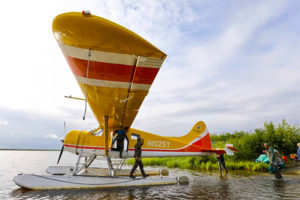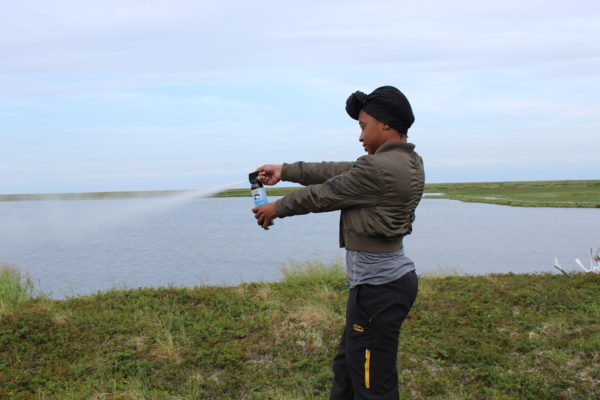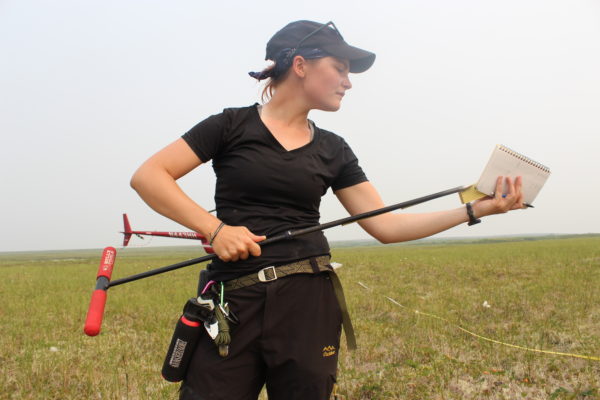 The Polaris Project 2017 research team – featuring students from across the United States, WHRC scientists, and colleagues – have arrived at their camp in the Yukon Delta and are studying the impact of climate change on the arctic.
The Polaris Project 2017 research team – featuring students from across the United States, WHRC scientists, and colleagues – have arrived at their camp in the Yukon Delta and are studying the impact of climate change on the arctic.
The team traveled to the camp from Bethel, Alaska, by float plane.There are a total of 24 people at the site, which includes sleeping tents for camp staff and short time visitors, the kitchen tent, the common tent (for meals, group announcements, collaboration between students and scientists/faculty, and just hanging out), the science tent (housing all the science gear), two outhouses, and then the student and scientist tents.
Water is collected in five gallon buckets from the surrounding lake, and then filtered for drinking water, hand washing, and kitchen use. Between 40 and 50 gallons of water are filtered each day to meet the demands of the camp. Camp staff prepare a hot breakfast and dinner, and provide food for the students and scientists to make their own field lunches.
The team makes every effort to minimize the camp’s environmental footprint. The larger tents have been built on top of wooden platforms and flags are used to delineate preferred walking pathways. No trash or solid human waste will remain at the end of this year’s Polaris camp.
Students and faculty are getting out to the field daily, and there has been one full day of flying around in a helicopter to sites that are beyond walking distance. For many students, this was their first time ever in a helicopter. Over the past couple of days, the weather has been fantastic. The sun is out more often than not and there is a light breeze to keep the mosquitos down.



